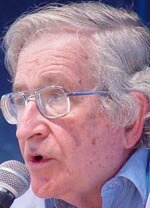Some 203 prisoners from the West Bank will not return home: 40 will be exiled outside to other countries and the rest will be sent to Gaza, the official said.
Israel
Palestinian prisoners have entered their third week of hunger strike. After two weeks of hunger strike, physical symptoms become increasingly severe and prisoners’ lives and health are ever more at risk…As of October 9, 300 prisoners were participating in a complete open ended hunger strike and 3000 in a partial hunger strike. Additional prisoners have been joining the strike on a daily basis – on October 10 and 11, over 1500 prisoners at Nafha, Ramon, Eshel, Asqelan, and Gilboa prisons have joined in the open-ended strikes
On 9 October 2011, four women political prisoners have joined the open hunger strike…the prison authorities punished the women prisoners who joined the hunger strike and took many things from their cell, including television, radio, hot plate, kettle, notebooks, books, pens and all the food that was in the cell, including sugar and salt.
With no hope of statehood, Palestinians will have to devise their own new strategy for coping with the reality of an apartheid system in which the Jewish settlers become their permanent neighbours. Trapped in a single state ruled over by their occupiers, Palestinians are likely to draw on the experience of their cousins inside Israel. Israel’s Arab community has been struggling with marginalisation and subordination within a Jewish state for decades. They have responded with a vocal campaign for equality that has antagonised the Jewish majority and resulted in a wave of anti-Arab legislation.
Hamas leader Khaled Mashaal said Israel will release 1,027 prisoners in two stages. Within a week, 450 will be swapped for Shalit and the rest will be freed two months later. Twenty-seven women are among those on the release roster.
The head of the Palestinian Detainees Center has criticized prisoners affiliated with Hamas and Islamic Jihad for stalling on joining a hunger strike to protest Israel’s prison conditions…The prisoners’ rights group Addameer says Israel has detained over 650,000 Palestinians since it occupied the West Bank and Gaza in 1967, around 20 percent of the population.
The dynamics that guard these protests are that of a social movement. However, the content of the demonstrators’ demands should be subjected to a serious discussion and critique. One of the major contradictory aspects of this movement is the exclusive understanding of the value of social justice. Social justice is a universal value, but for the protesters in Tel Aviv’s Rothschild Boulevard, it is limited only to the internal dynamics of Israeli society.
Why list religion [on Israeli national IDs] at all? Isn’t the reason for the tremendous importance of the ‘religion clause’ the need to distinguish between Jews and Arabs, in order to discriminate simply by defining the difference? Of course.
IOA Editor: Important review of the role of official religious identification (indicated on national IDs) in Israel: a tool devised by the mainstream (secular) Zionist leadership around 1948 to distinguish between Jews and Arabs in the new state.
Sarah Benninga: When the wives of the male attackers saw their husbands hitting male and female protestors alike, they [the settler women] applauded and spat at me: ‘Traitor,’ ‘You deserve it.’ And when they heard their husbands threaten us: ‘We’ll fuck you in the ass,’ they suddenly turned into men themselves, applauding their husbands’ sexual conquests as if they were one of the boys.
Palestinian prisoners in several prisons, including Nafha prison, have reported in the past few days that they were threatened that family visits would be denied in retaliation for their participation in the hunger strike. Israeli prison officials told the prisoners that for each day they spent on hunger strike, they would be banned from family visitation for 1 month.
Israel’s prison administration has refused Palestinian detainees’ demands as prisoners enter their eighth day on hunger strike, the minister of detainees’ affairs in Ramallah said Tuesday… According to latest reports from the Palestinian Authority, 6,000 Palestinians are being detained in Israeli prisons, including 219 in Administrative Detention who are held without charge.
Palestinian detainees in prisons across Israel are on hunger strike for the seventh consecutive day in protest against being forced into isolation cells and being deprived of family visits.
On Friday, 24 June at 12:46 pm, the prison administration brought us, the prisoners, a watermelon. It was our first watermelon of 2011. According to the prison regulations, each prisoner gets 180 grams of fruit each day. It’s one of our basic rights.
Prime Minister Benjamin Netanyahu has promised that in his speech at the UN on Friday, he will “tell the truth”. This is no trivial matter when it involves a politician who invented an encounter with British soldiers that happened before he was born… The following lines are an attempt to formulate Netanyahu’s truth ahead of one more speech of a lifetime.
Bedouins in the Negev continue to be targeted by Israeli efforts to displace them. The Israeli government has now approved a plan that would uproot 30,000 Palestinians and place them in “recognized villages.”
Although the Zabeidats’ petition raised the issue of the legality of the committees in general, the court in its ruling on the case chose not to address the issue directly and instead is awaiting the attorney general’s opinion on the issue. The step was also taken because there is a case pending before the court challenging the propriety of the committees.
IOA Editor: The admission-committees system enables hundreds of Israeli Jewish towns and villages to reject individuals seeking to reside in them based on “incompatibility” – a sufficiently general term used to reject Palestinian citizens of Israel. The Israel Lands Administration’s reversal of a long standing policy of systematic discrimination against Israel’s Palestinian citizens, in this instance only, is merely a tactical move designed to deal with this potentially precedent-setting legal case: All discriminatory laws and practices remain unchanged, continuing a long history of ethnic cleansing efforts on the part of all Israeli governments, “Right” and “Left” alike.
Campaigners for Palestinian rights are celebrating after the primary Israeli agricultural produce export company Agrexco, which has been a key target of the boycott, divestment and sanctions (BDS) movement in support of Palestinian rights, has been ordered into liquidation after being unable to pay its creditors… Agrexco is a partially state-owned Israeli exporter responsible for the export of a large proportion of fresh Israeli produce, including 60-70% of the agricultural produce grown in Israel’s illegal settlements in Occupied Palestinian Territories (OPT).
The protest is supported by 90% of Israelis. It is led mainly by students and white-collar workers who are described by the media, somewhat misleadingly, as ‘middle class’. In fact, the demands raised by them indicate that they feel they are being proletarianised, and display solidarity with the poor. The prevailing spirit is that of egalitarianism, self-activity and grassroots direct democracy.
Palestinian residents of Sahknin, an Arab Galilee town, petitioned the Israeli High Court of Justice five years ago over rejection by Rakefet’s admissions committee.
IOA Editor: The admission-committees system enables hundreds of Israeli Jewish towns and villages to reject individuals seeking to reside in them based on “incompatibility” – a sufficiently general term used to reject Palestinian citizens of Israel. The Israel Lands Administration’s reversal of a long standing policy of systematic discrimination against Israel’s Palestinian citizens, in this instance only, is merely a tactical move designed to deal with this potentially precedent-setting legal case: All discriminatory laws and practices remain unchanged, continuing a long history of ethnic cleansing efforts on the part of all Israeli governments, “Right” and “Left” alike.
Israel’s “March of the Million” brought out more people than any other protest in Israel’s history. Meanwhile the government has decided to keep quiet, only appointing a committee to look into the demands of the J14 movement. While many on the street have different ideas about how to move ahead, most have little faith in the committee.























